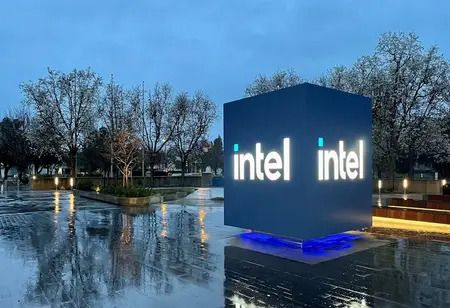
Trump says U.S. would Take a 10 percent Stake in Intel


President Donald Trump announced that the U.S. would acquire a 10 percent share in Intel as part of an agreement with the faltering chip manufacturer and intends to pursue additional similar actions, marking another remarkable intervention by the White House in American business.
A source familiar with the situation indicated that an official announcement regarding the arrangement is anticipated later today. A White House official confirmed that Trump is scheduled to meet with CEO Lip-Bu Tan.
The advancement comes after a meeting between Tan and Trump earlier this month, which was triggered by Trump's request for the Intel chief's resignation due to his connections with Chinese companies.
He entered with the desire to retain his position and ultimately provided us with $10 billion for the United States. "Trump states, 'We raised $10 billion.'"
Also Read: Celebrities Poured into Wimbledon 2025
Although Trump did not elaborate on the $10 billion, the equity share is roughly equivalent to the funding that Intel is expected to obtain from CHIPS Act grants to assist in constructing chip manufacturing facilities in the U.S.
The Intel investment would represent the most recent of various unusual agreements with U.S. firms, including a deal permitting AI chip leader Nvidia to sell its H20 chips to China in return for the U.S. government obtaining 15 percent of the sales.
The Pentagon is set to become the biggest stakeholder in a small mining firm to increase production of rare earth magnets, and the U.S. government has secured a "golden share" with specific veto powers as part of an agreement permitting Nippon Steel.
Also Read: US Tariffs on India an Economic Boon?
Critics are concerned that the extensive involvement of the U.S. government in business affairs under Trump introduces new forms of corporate risk.
A 10 percent ownership at today's share prices would be approximately valued at $10 billion. Commerce Secretary Howard Lutnick stated this week that any investment would be non-voting, indicating it wouldn't allow the U.S. government to dictate how the company operates.